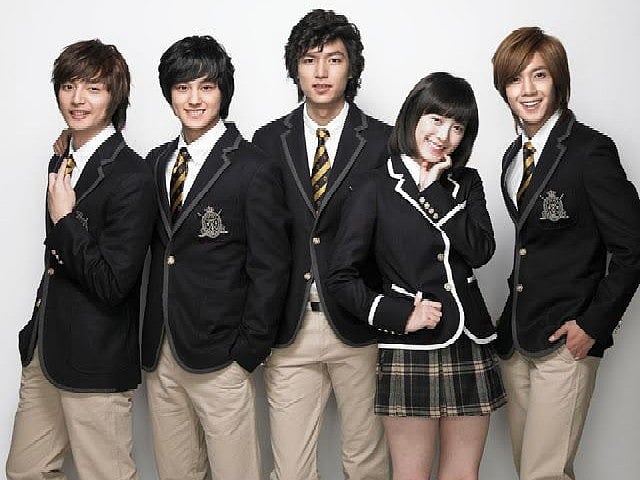K-Drama Rewind, Boys Over Flowers: Why Lee Min-ho's fever dream of a melodrama still remains iconic 16 years later
Released in 2009, the show still remains a favourite among fans today

Ah, the pre-2014 K-Dramas hold an undeniable place in the K-Drama canon. From the cinematography and hairstyles to the blaring music signaling that something monumental just happened—just in case you missed it. The storytelling was as subtle as a battering ram, and the acting ranged from understated to so over-the-top that you couldn’t help but get hooked.
And that’s the joy of Boys over Flowers. It’s that show, that hard-core K-Drama fans will insist that you watch. How can you make your journey without it, I was told, when I had ventured into the realm and watched six shows without brushing past Lee Min-ho’s curly hair. Well, for starters, I’ll say it was a far less frustrating experience than The Heirs—Min-ho’s other international hit, which more or less recycles the same premise.
So, what is Boys over Flowers about? Wait, scratch that. What is it not about? Not much, to be honest. It has every conceivable plot line and character trope in existence, from evil Ommas to finally ending on a high with an amnesia bout (that’s quickly resolved by the way), which explains the 25 episode format. At the centre of the story is the ‘F4’—the rich, powerful four boys in the school, as defined by their love for horse-riding, grand Bridgerton-esque balls and fur coats for some reason. Min-ho’s Jun-pyo, Kim Bum’s So Yi-Jeong, and Kim Hyun Joong’s Yoon Ji-hoo along with Kim Joon’s criminally underused Song Woo-bin who has practically no storyline in the show, except for just being...nice? Well, that’s a relief in a way, because it would take another 10 episodes to wrap his storyline up too.
The F4 is feared and deeply admired as the entire school flocks to the staircase, collectively ‘ooh’ing and ‘aah-ing’. All of course, except for perplexed Kim Hye-sun’s Gum Jan-di, our female protagonist, who has been transferred to the rich school as part of a scholarship. Her parents work in the laundry business and live in a modest flat—a classic pre-2014 K-Drama detail that signifies they're financially struggling but rich in love and family bonds. She's a swimmer, and the pride of her family.
After a series of verbal jousting, Jun-pyo and Jan-di are somewhat on the same page, slowly edging towards their love story that will form the rest of the show, but please sit by while she resolves her confused feelings for his best friend Ji-hoo, who is at first very sulky that the girl he loved upped and went abroad. But by the time he falls for Jan-di, mayday mayday, it’s too late, she’s already deeply in love with Jun-pyo’s aggression and is too busy being pushed around by him. By the time the series wraps up, we've seen it all—stalled weddings, manufactured noble breakups, countless failed swimming attempts, kidnappers, blackmailers, side-character subplots complete with dramatic flashbacks, an excess of damsel-in-distress moments, and, for the grand finale, the revelation of a comatose father hidden away in a secret lair.
Boys Over Flowers is a soap opera— and an undeniably entertaining one at that. It’s the kind of show you don’t analyze for being ‘good’ or ‘bad’; you just sit back and enjoy it—mildly perplexed by its tangled storylines and wondering, yet again, why Jan-di keeps choosing Jun-pyo when Ji-hoo seems far more stable (questionable hairstyle aside). The acting is as over-the-top as you’d expect—no complaints there. But one scene that truly stands out? A heartbroken Jun-pyo chasing after Jan-di’s bus as she leaves him in a dramatic blaze of self-sacrifice, right after spending a perfect day together. (Lesson #1 in K-drama school: If your partner plans an extra-special, romantic date, brace yourself—a breakup is imminent.)
There's a special kind of nostalgia for shows like these, even as you revel in the more nuanced storytelling of today’s K-dramas. Sometimes, you just want to indulge in a wildly flamboyant drama that defies logic but delivers pure entertainment. That era is long gone—and for good reason—but at least you can revisit its glorious chaos whenever you please.
Sign up for the Daily Briefing
Get the latest news and updates straight to your inbox
Network Links
GN StoreDownload our app
© Al Nisr Publishing LLC 2026. All rights reserved.